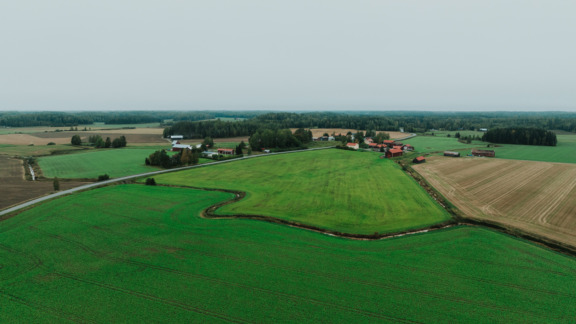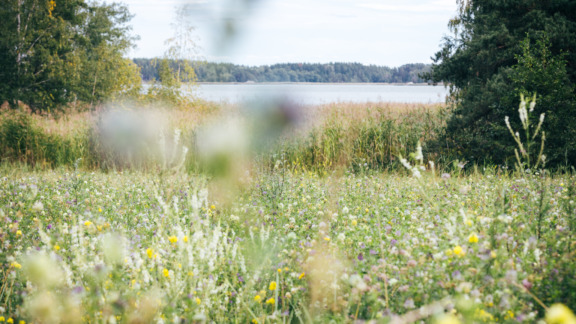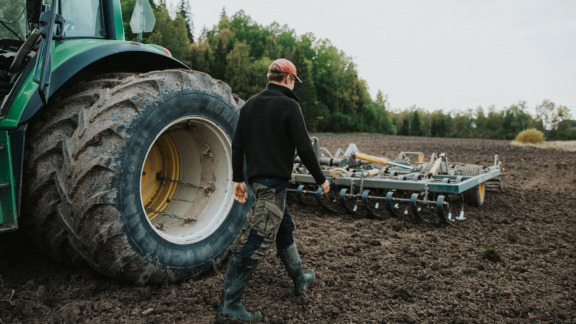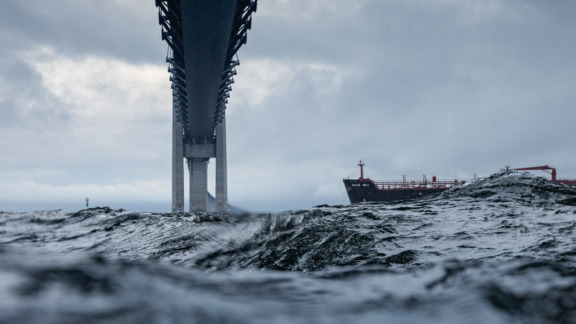“If soil goes wrong, agriculture will not go right” – the 4/1000 Initiative gathered stakeholders in Helsinki
The 1st Northern European Regional Meeting of the global 4 per 1000 Initiative brought together over 300 researchers, business and NGO representatives, farmers, and policymakers in Helsinki on 6–8 June 2023. Participants discussed the multiple benefits that soil health can offer, as well as the bottlenecks hindering the large-scale improving of soil health. Main messages to be presented at UNFCCC COP28 later this year were formulated at the meeting.
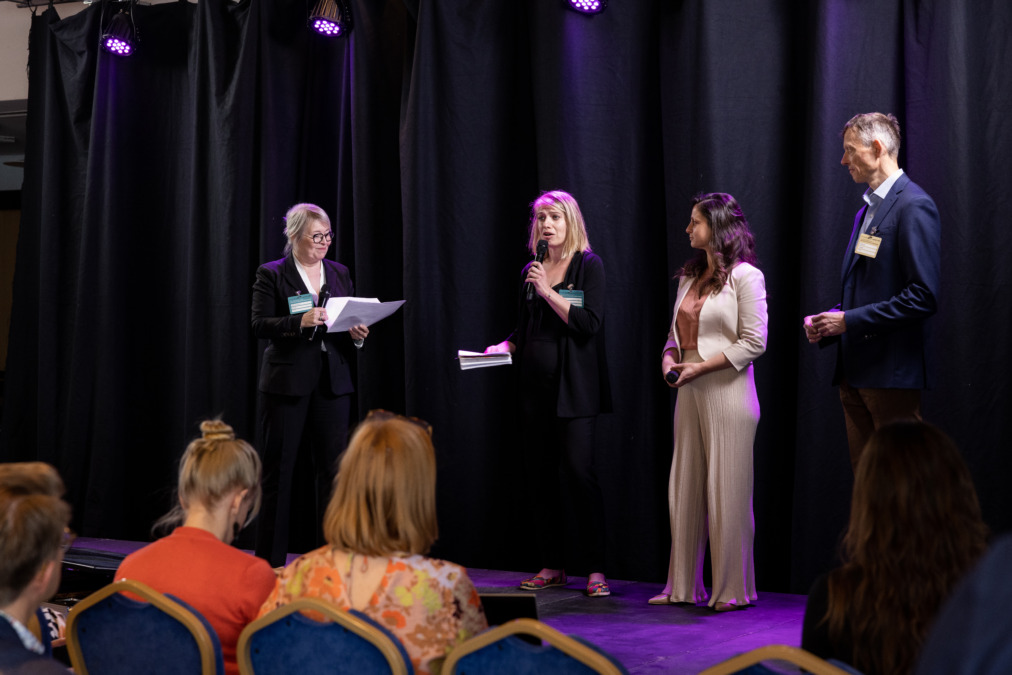
The meeting consisted of two conference days with over 50 speakers, followed by field excursions on the third day. You can find all the recordings here, presentation slides here, and all the photos here.
Participants came from more than 30 different countries from different corners of Northern Europe and beyond. The biggest number of participants came from Finland, followed by Sweden, Norway, France, Poland, Denmark, Germany, and Estonia.
On the first day, the speakers focused on framing the topic and the importance of soil health and shed light on the bottlenecks hindering the improvement of soil. As Magda Kopczynska, from the European Commission said in her speech “If soil goes wrong, agriculture will not go right”.
The day ended with intriguing farmer stories and soil art. The farmer stories continued during dinner, as farmers told the guests about the food they had grown for the menu.
“During the first day, it was highlighted that to ensure adequate production of healthy and nutritious food, we must focus on soil health and its regeneration. It was widely recognized that this requires, perhaps most of all, a paradigm shift – not only a change of mindset of farmers, but of everyone involved in the food system,” says Elisa Vainio, project manager at the Baltic Sea Action Group.
Photos from the first day
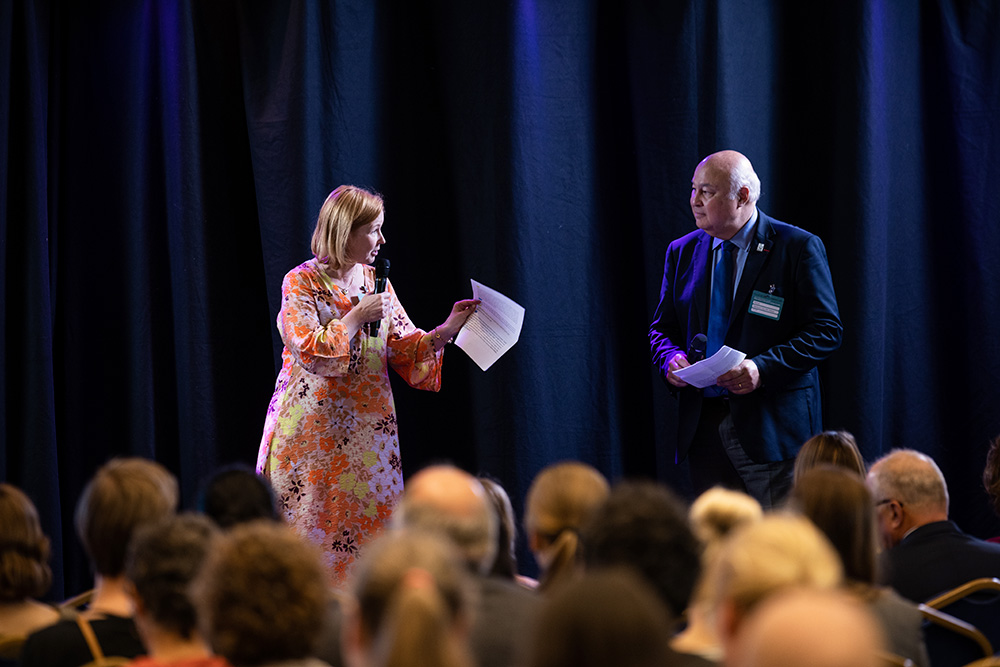
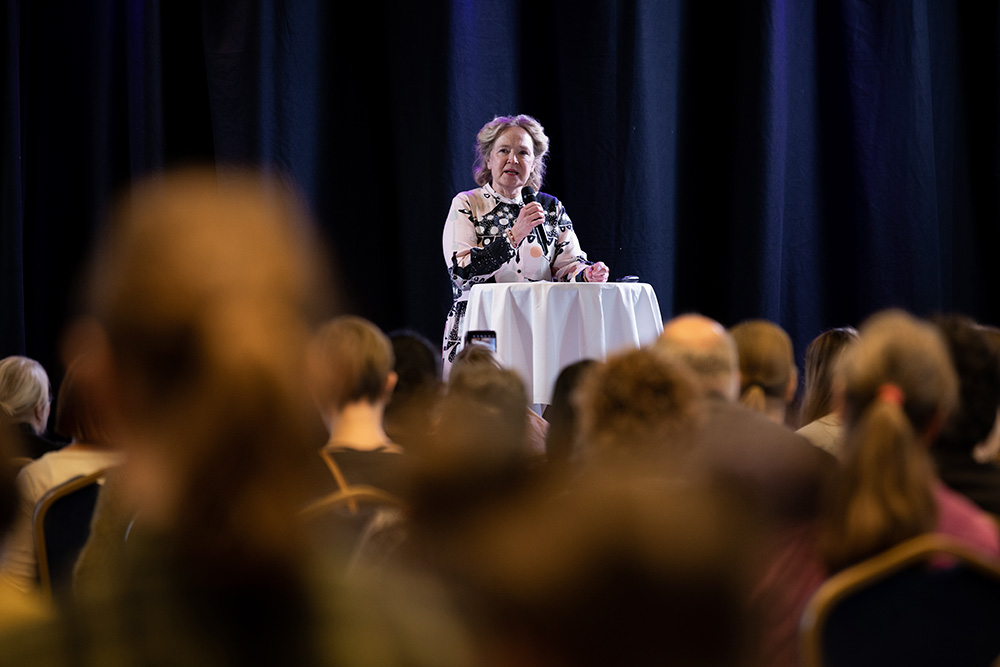
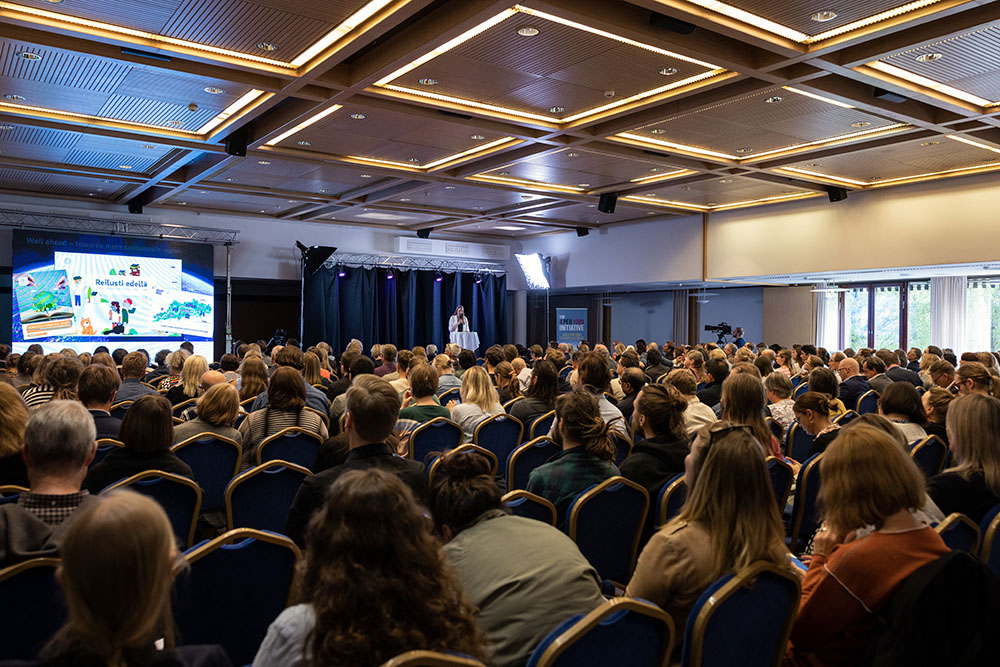
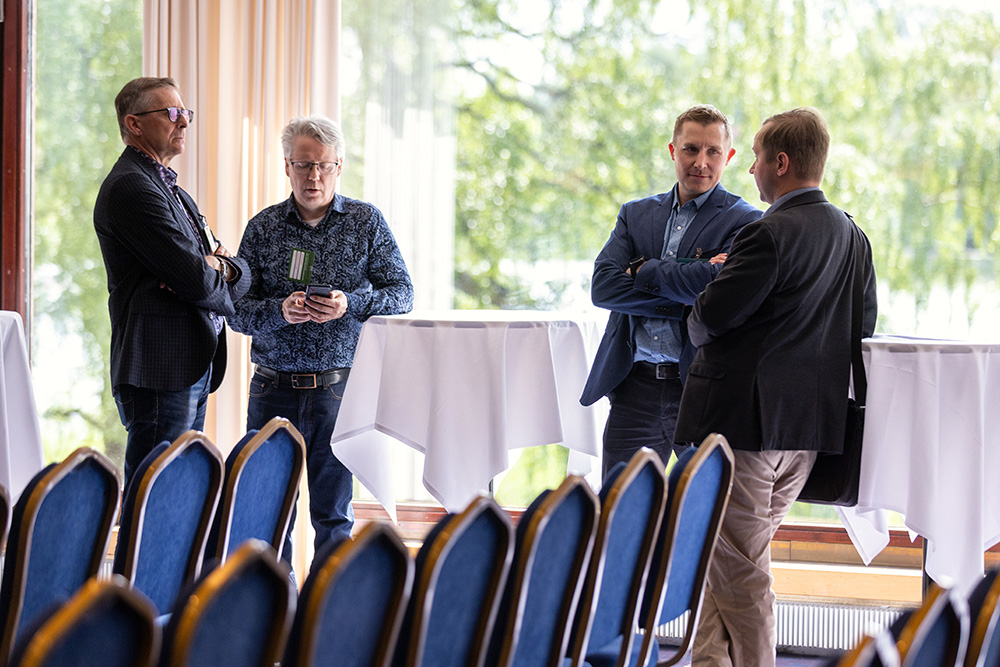
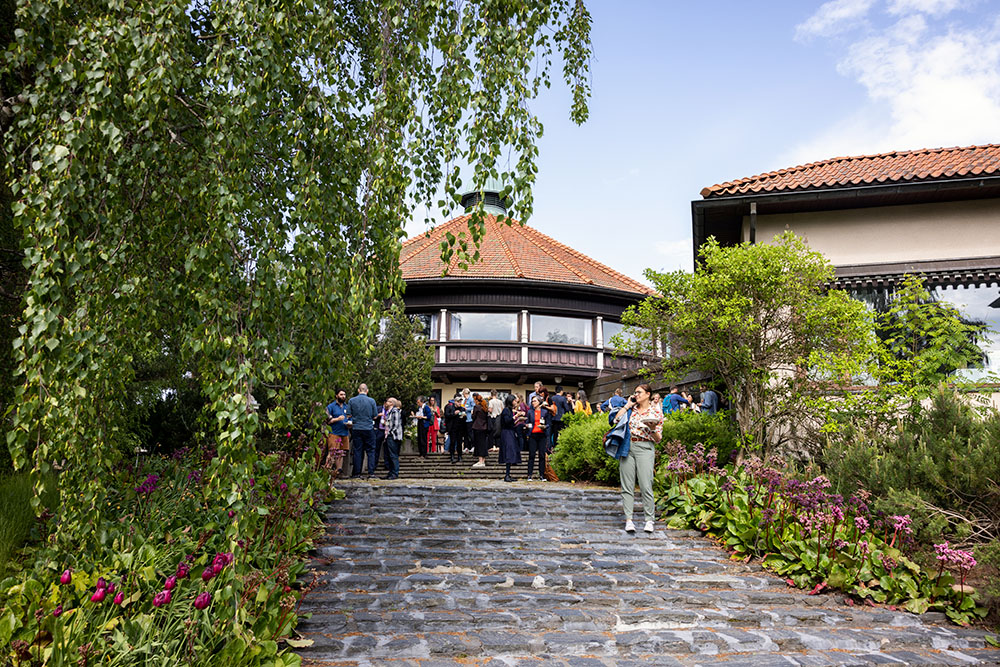
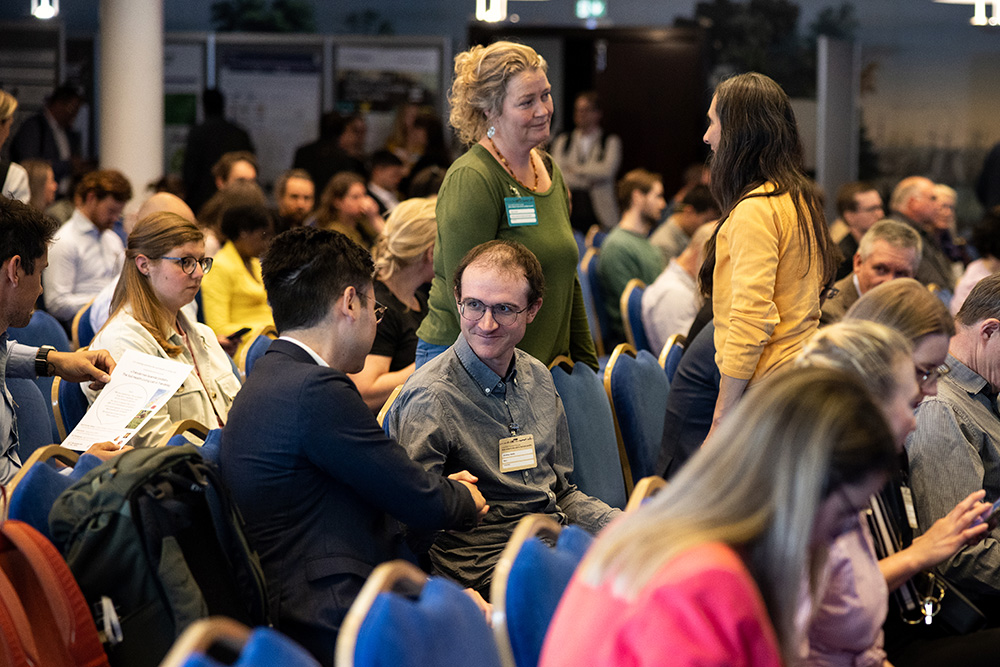
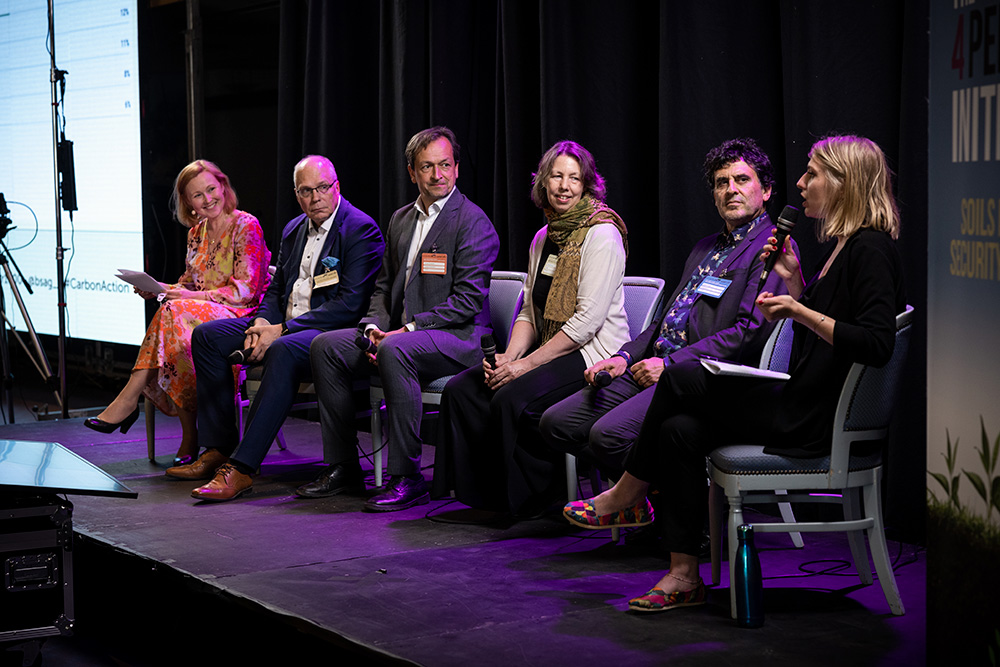
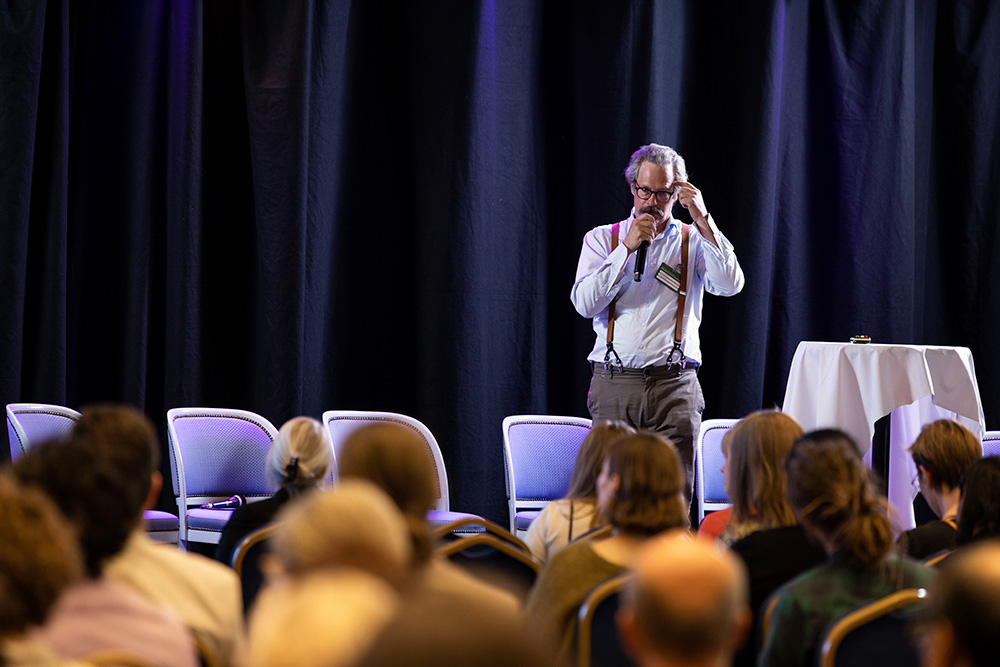
Second day: deep dives into three topics
The second day started with inspiring presentations by the youth climate and nature delegates appointed by The Finnish National Youth Council Allianssi. Later, the audience heard 30 presentations in three parallel sessions, focusing on soil carbon MRV (monitoring, reporting and verification), organic agricultural soils, and multiple benefits of soil health. The messages from these sessions were concluded in the final panel discussion.
To conclude the day, the main stakeholder – soil – was brought on stage. The ability of healthy soil to retain solid matter was demonstrated to the participants. This underscored the importance of soil health in protection of waters, such as the Baltic Sea.
“We need to promote carbon sequestration in agricultural soils for the many benefits it provides. We need to focus simultaneously on increasing soil carbon sequestration and soil health – this requires, for example, training for farmers and advisors. Promoting high plant diversity in agriculture provides many benefits as well, including improved soil carbon accumulation,” said professor Claire Chenu from INRAE.
Main messages formulated for COP28
A few main messages that will be presented at UNFCCC COP28 in Dubai later this year were formulated at the meeting. They will be published in more detail later – in brief, however, the messages are as follows:
- Soil is the essential base of food production. We cannot produce enough good-quality food, locally or globally, without healthy soils.
- Now, soils are degrading, and we need actions to regenerate soil health urgently. This has also been recognized within the EU.
- We see the importance of knowledge transfer, peer-to-peer learning, and more advisory services on rebuilding soil health.
- We also see that, despite some indisputable improvements, the current CAP seems insufficient – we need the next CAP to be more ambitious to ensure more rapid transformation.
- While we need a reliable, state-of-the-art monitoring, reporting, and verification (MRV) system for soil carbon, we also need to keep in mind the other benefits of improving soil health and increasing biodiversity in agriculture.
Photos from the field trip to Qvidja manor
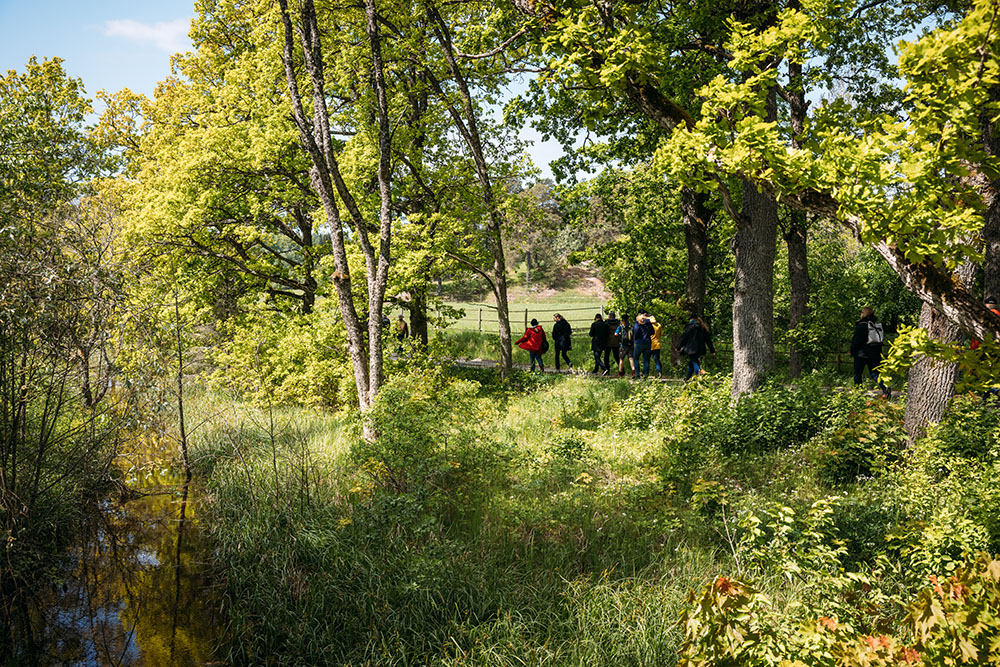
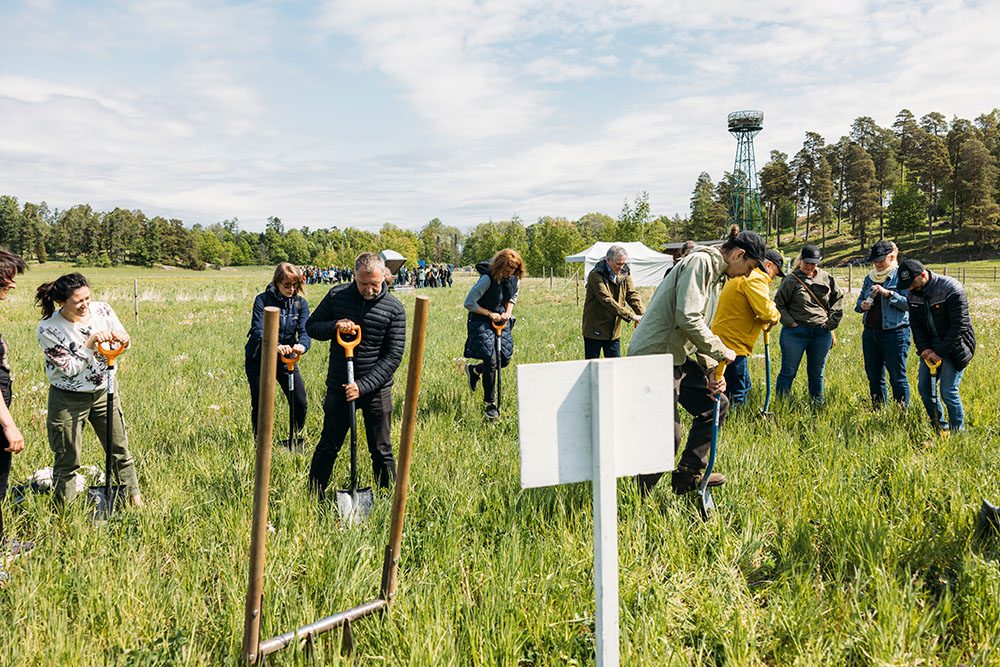
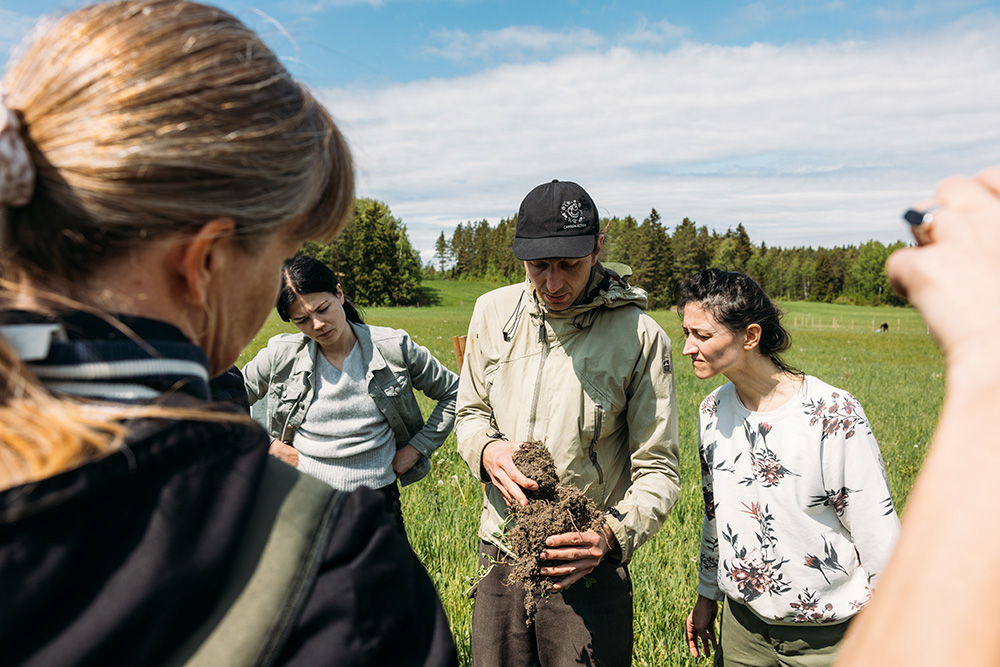
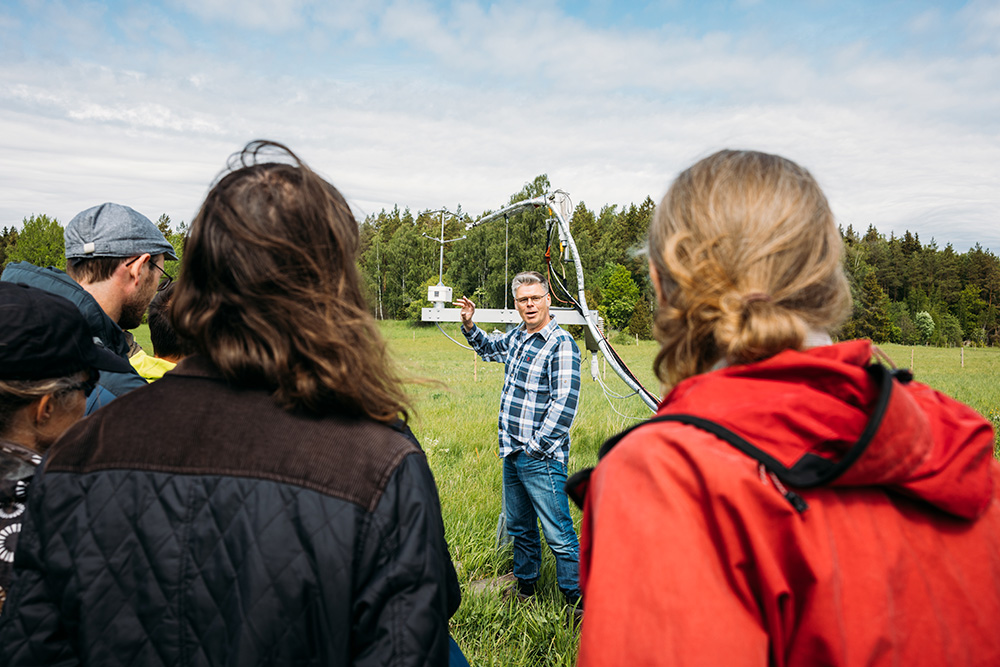
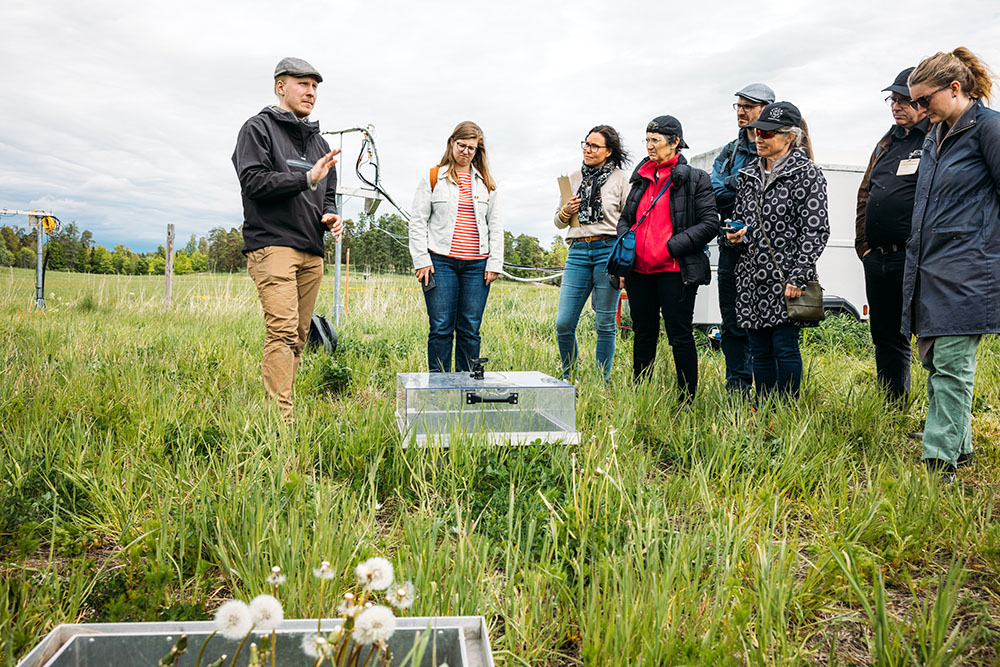
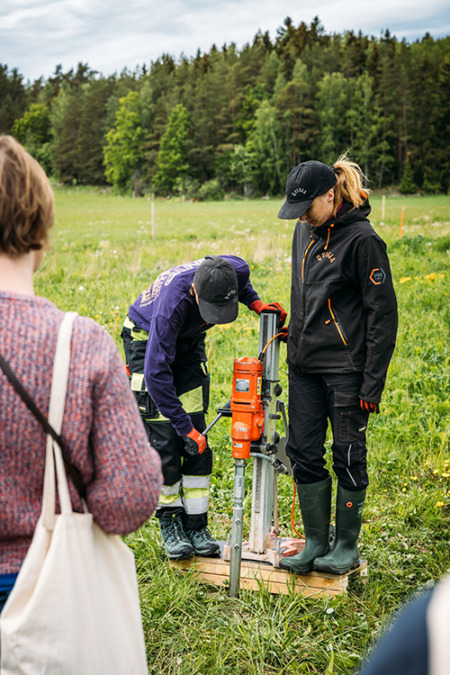
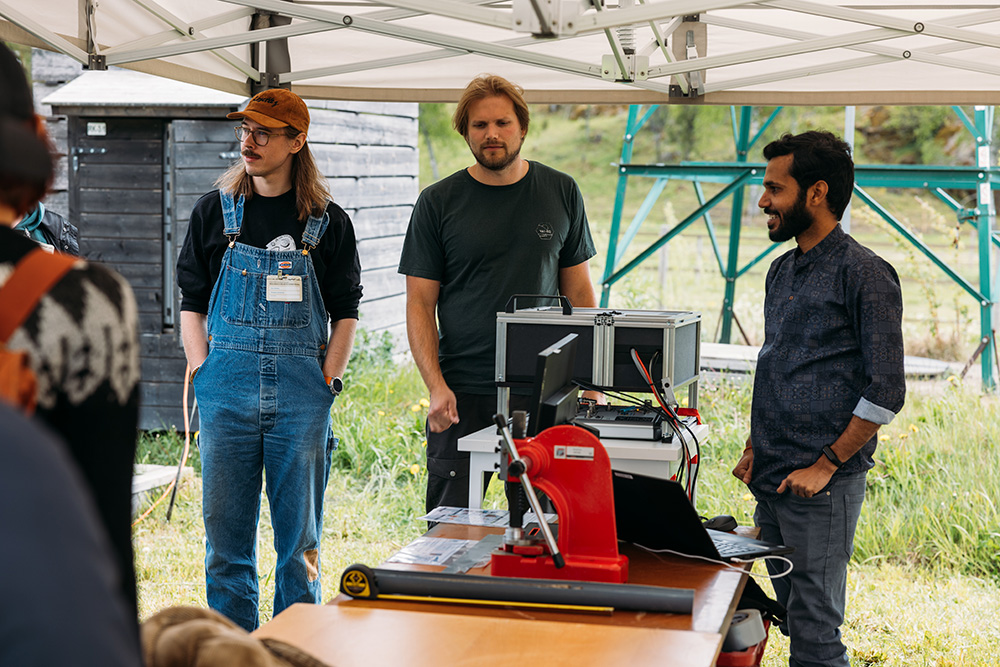
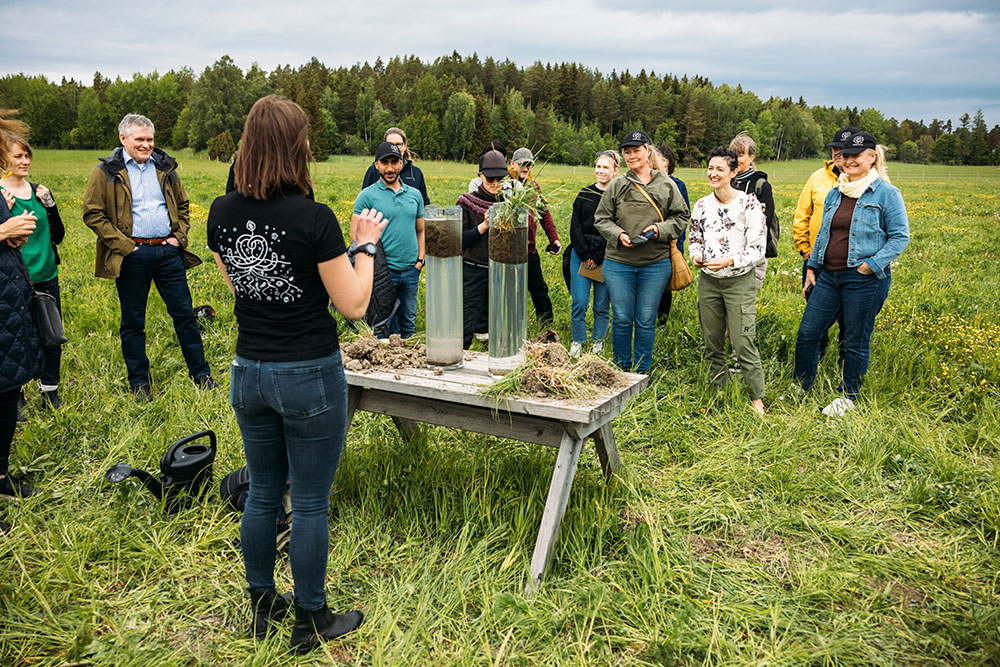
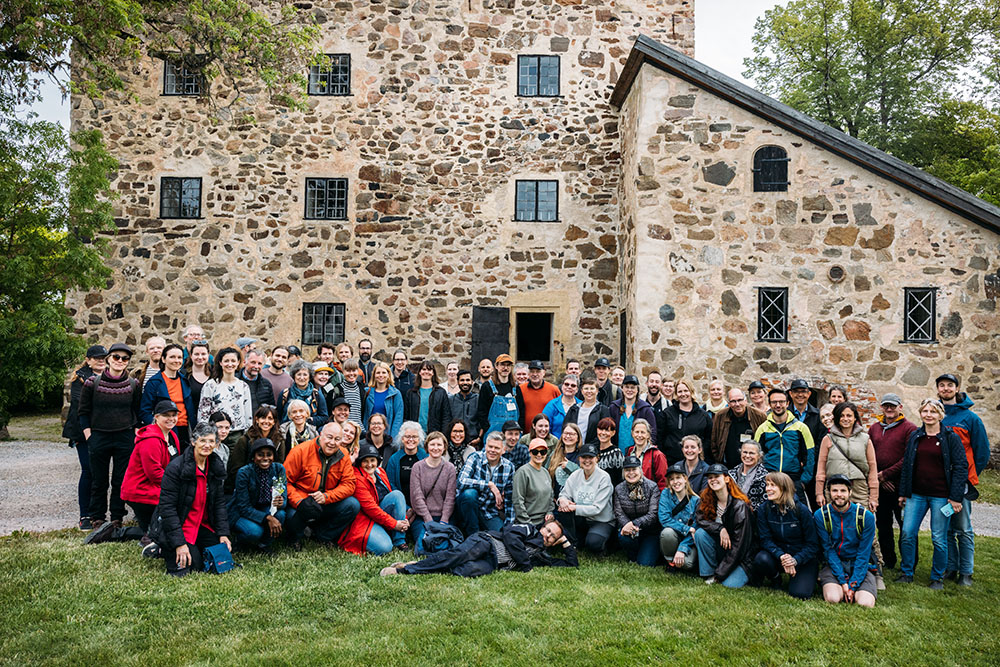
Funders and sponsors
The event was organized jointly by Baltic Sea Action Group and the 4 per 1000 Initiative. It was funded by the “Catch the Carbon” programme of the Ministry of Agriculture and Forestry of Finland, the Strategic Research Council at the Academy of Finland, and the 4 per 1000 Initiative. Sponsors included Maj and Tor Nessling Foundation, EIT Food, and the Helsinki-Uusimaa Regional Council.
The 4 per 1000 Initiative aims to achieve an annual growth rate of 0.4% in the soil carbon stocks, or 4‰ per year, in the first 30–40 cm of soil. Agricultural soils can play a crucial role in food security and climate change mitigation.
EIT Food leads the world’s largest food innovation community, accelerating innovation to build a future-fit food system that produces healthy and sustainable food for all. EIT Food is supported by the European Institute of Innovation and Technology (EIT), a body of the European Union. EIT Food promotes regenerative agriculture through the projects Regenerative Agriculture Revolution and Test Farms.
Helsinki-Uusimaa Regional Council is the driver of the regional development in Finland’s largest region. Read more about their work and development goals.
